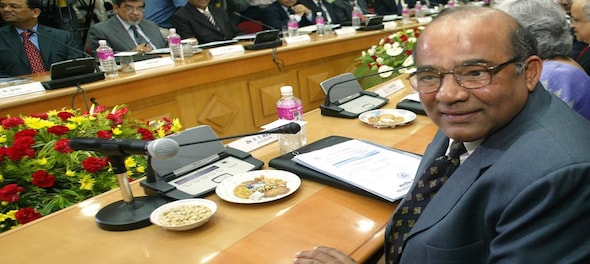
With the economic development and passage of time, the perceived superior quality of the central government over the state government is diminishing, said former RBI governor Y V Reddy. He pointed out, “States have acquired expertise in administration and they are also able to buy the services of consultants like a McKenzie or a Deloitte like the Centre does”.
Reddy was speaking on the subject of Centre-state relations at a webinar organised by think-tank Manthan. Largely known as a former RBI governor, Reddy started his career as a civil servant of the Andhra cadre, served as secretary in that state for many years and is a recognised expert on Centre-state issues. He had also chaired the fourteenth finance commission and co-authored a book titled “Indian Fiscal Federalism”.
In his analysis at Manthan, Reddy said while Nehru had tried to work with chief ministers through consensus and cooperation, Mrs Indira Gandhi tilted the balance in favour of the Centre through nationalisation of banks.
Nationalisation gave the Centre feet-on-the-street, in terms of bank officials who would implement central programmes. Also, the licencing policy gave the Centre huge power over-allocation of resources and right to set up industries.
However with the liberalisation and delicencing, states were strengthened as they could liaise with the private sector and foreign companies, offering them incentives to set up units in their states. He said that states genuinely came into their own under the 10-year prime ministership of Manmohan Singh and one got to see states experimenting with different models - like the Kerala model, the Odisha model or the Gujarat model.
To a question on whether recent steps like starting a ministry of co-operation, or Centre taking decisions over minor ports, will reduce states’ terrain or lead to conflict, Reddy said the Centre would be advised to keep off those state subjects where there are no externalities, where the impact is entirely restricted to a state.
While the GST Council is a good institutional development, he said with the demise of the Planning Commission and the NDC or the National Development Council, there is an absence of any forum where Centre and states can discuss “centre-state “ and “national” issues. “There are central government issues and state government issues, but separately there are national issues which involve the entire nation and it is the responsibility of the central government to create an institution where these can be discussed,” Reddy said.
If such an intuition is created, he said the Centre would benefit by seeking chief ministers’ views even on central subjects.
Reddy’s verdict on the overall evolution of federalism was most heartening. “Among post-colonial countries, India’s record of federalism is perhaps most excellent when it comes to national and sub-national governments; the transfer of power between successive governments at both the central and state level has been largely smooth.” the veteran governor said.
(Edited by : Bivekananda Biswas)
First Published: Jul 25, 2021 6:08 PM IST
Check out our in-depth Market Coverage, Business News & get real-time Stock Market Updates on CNBC-TV18. Also, Watch our channels CNBC-TV18, CNBC Awaaz and CNBC Bajar Live on-the-go!


BJP holds meeting in Delhi as polling underway for 5th phase
May 20, 2024 4:21 PM
UP Police arrests man after viral videos shows him voting multiple times
May 20, 2024 2:18 PM

